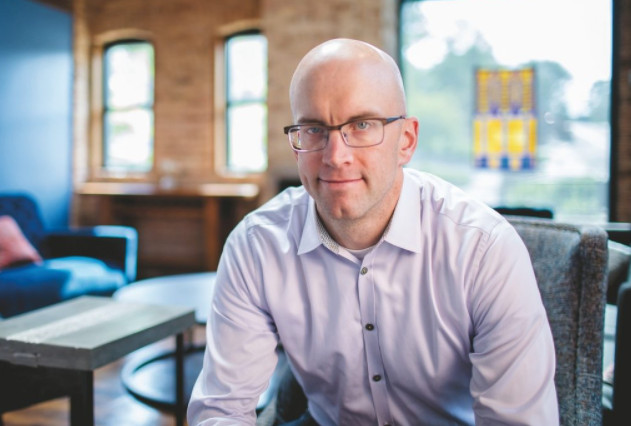Hope Springs Eternal
The end of Jesus’ life on earth was filled with alienation, pain, and mocking. As Matthew recalls in the 26th chapter of his Gospel, “…the men stepped forward, seized Jesus, and arrested him” (26:50). The first reaction of Jesus’ disciples was violence (verse 51), but Jesus said no protection was needed from his friends (verses 52-56). This was, after all, the plan. As crazy as that sounds.
Before long, however, Jesus was alienated and left to fend for himself. Peter gets picked on by modern readers, so it is important to clarify he was not the only one that left Jesus. All did. But Peter did deny that he knew Jesus (verses 69-75). Later on, this was all forgiven, and it serves as a reminder that we can always come back home to Jesus (John 21:15-17).
Next for Jesus was physical pain. The soldiers “…spit in his face and struck him with their fists. Others slapped him” (Matthew 26:67). A “crown of thorns was set on his head” (Matthew 27:29). “They struck him on the head again and again” (verse 30), and led him away to be crucified. Crucifixion involved the nailing of irons into his arms and legs. It was a brutal and unimaginably awful way to die.
Yet, this was not the end.
Besides the alienation of his friends and the pain he endured, Jesus also dealt with mocking. Early on, it came from the soldiers: “Then they knelt in front of him (Jesus) and mocked him” (verse 27:29). Later on the cross, it came from two rebels who hung beside him. Then it came from the religious leaders watching all the events take place in front of them: “…the teachers of the law and the elders mocked him” (27:41).
The end seemed to be now approaching, but it was really just the beginning.
You Are Not Alone
Do you feel alienated?
Do you struggle with physical pain?
Do you feel mocked?
Do you feel like the end is coming?
You are not alone.
“After the Sabbath…Mary Magdalene and the other Mary went to the Tomb” (Matthew 28:1). If you were going to make up a story two thousand years ago, your last choice of witnesses would be two women. Women were not considered credible witnesses in that culture, yet Jesus’ resurrection starts with women because everyone matters to Jesus, and all are welcome. “Suddenly Jesus met them. ‘Greetings,’ he said. They came to him, clasped his feet and worshipped him” (verse 9).
Have you come to Jesus? The invitation is for everyone and anyone!
But the religious leaders were not done yet. “When the chief priests had met with the elders and devised a plan, they gave the soldiers a large sum of money, telling them, ‘you are to say, ‘his disciples came during the night and stole him away while we were asleep.’” (Verses 11-13).
What are we to make of this? Did the same disciples who alienated Jesus come and do this? Did they somehow manage to overcome Roman guards and move a large boulder guarding the tomb’s entrance? Or is this whole story just made up?
I cannot speak for you, but I find it hard to believe that these disciples – the same ones that just alienated Jesus – would turn-around and come to spread the message of Jesus’ resurrection. Not only that, but that they would do so with such fervor that ten of them eventually would be martyred for doing so. That is, unless they were doing so from a place of being certain of what they had witnessed!
But you have to decide on your own.
The Hope of the World
In a world lacking hope, and in a world full of ridicule, alienation, and mocking, maybe it is time to reconsider the Hope of the World.
Jesus is the one I follow because he is the perfect example of truth, love, and hope. He is my Savior. In fact, there are not enough words to describe him in the dictionary! My entire life changed when I discovered the Hope found in him. And there is nothing blind about it. It is there for anyone to see if they look for it.
If anything written above tugs at your heart, maybe you should consider reading the book of Mark. You can read one chapter per day for the next 16 days and learn what Jesus says on his own. His words are better than mine!
What I can say is this:
Jesus welcomes all.
You can set your bags down.
There are no qualifications needed.
Your past is just that, your past.
You are home now.
Easter morning is here.
Hope springs eternal because of Jesus.
Hope Springs Eternal Read More »






